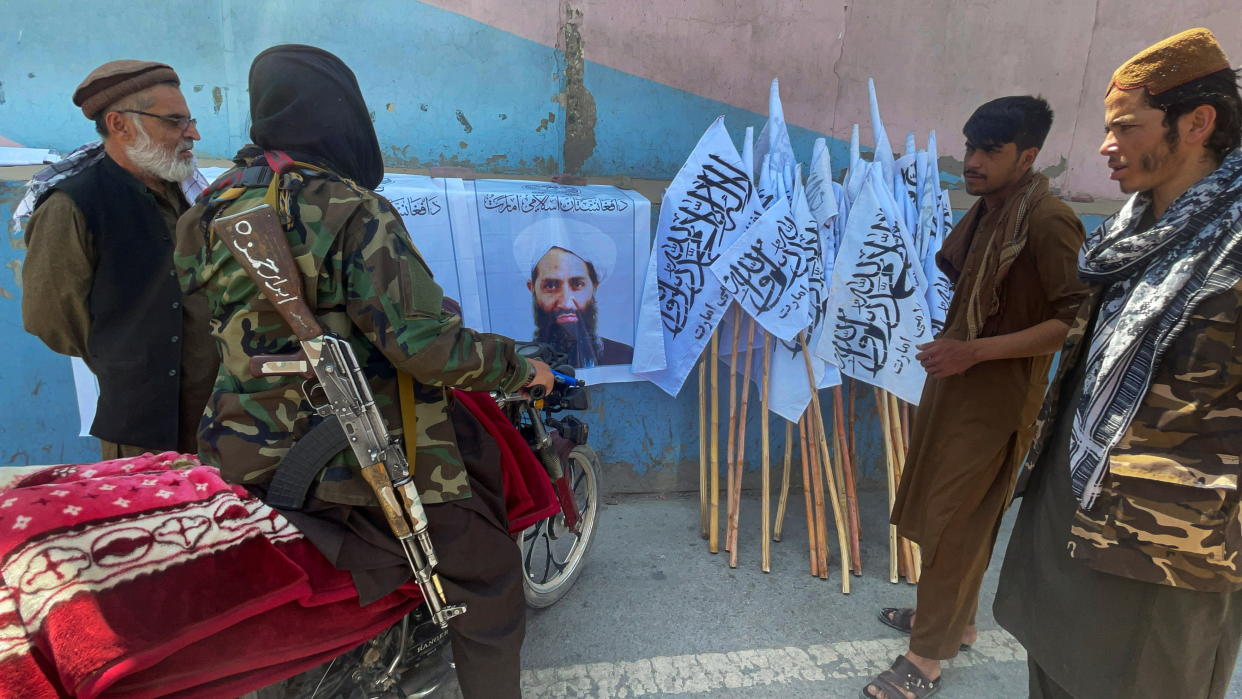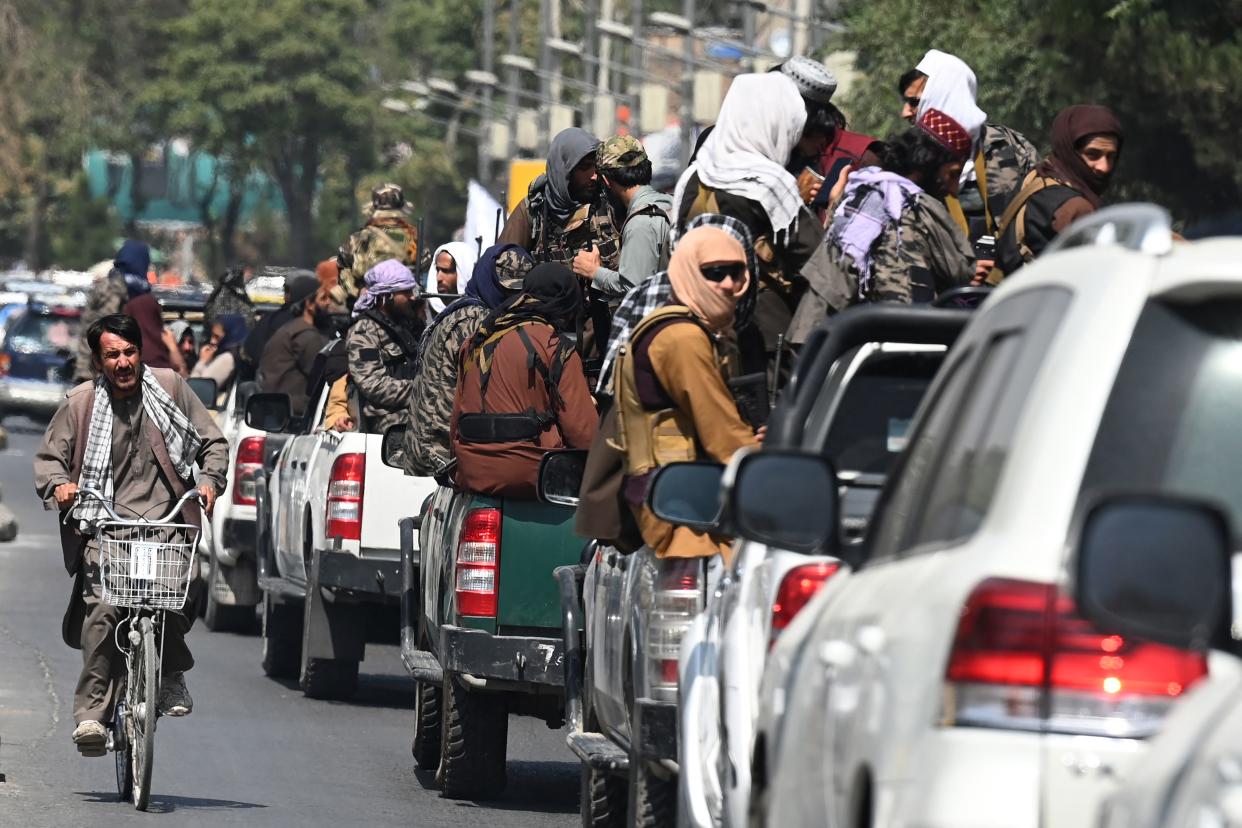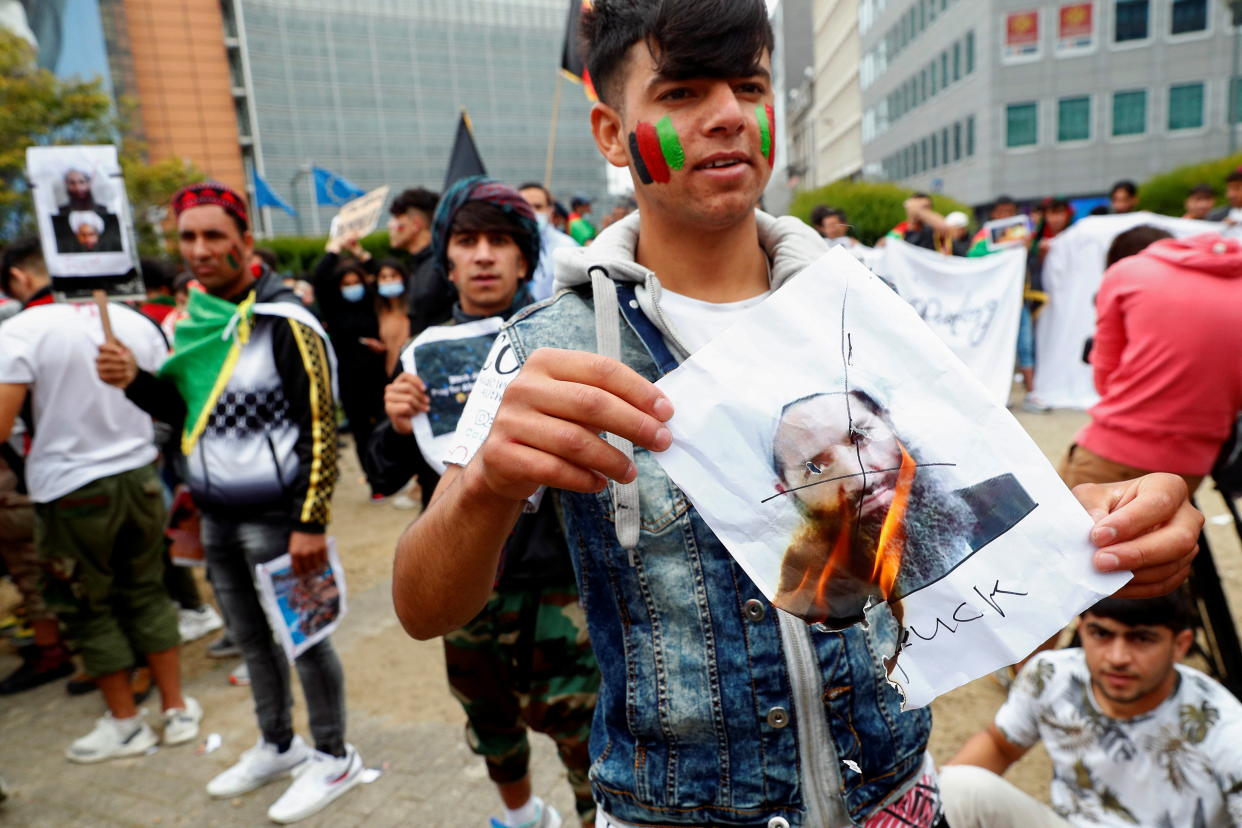Haibatullah Akhundzada: Who is the hardline leader of the Taliban?

With the Taliban set to secure their grip on Afghanistan and declare a new government in the coming days, little is known about the group's leader.
The Taliban recently secured their control of Afghanistan after a lightning offensive destroyed the Western-backed government.
Western forces have now left the country after being forced to carry out a hugely difficult evacuation effort from Kabul airport.
With the Taliban now in control, all parties are now asking what happens next for Afghanistan?
The group originally drew members from so-called "mujahideen" fighters who, with support from the United States, repelled Soviet forces in the 1980s.
The Taliban emerged in 1994 as one of the factions fighting a civil war and went on to control most of the country by 1996, when it imposed strict Islamic law.
Read more: Taliban spokesman says there 'may not' be any women in top government posts

Opponents and Western countries accused it of brutally enforcing its version of sharia and suppressing religious minorities.
Its founder and original leader was Mullah Mohammad Omar, who went into hiding after the Taliban was toppled by the US-led invasion.
So secretive were his whereabouts that his death, in 2013, was only confirmed two years later by his son.
Its current ruler is just as secretive.
Who is Taliban leader Haibatullah Akhundzada?
Known as the "Leader of the Faithful," the Islamic legal scholar is the Taliban's supreme leader who holds final authority over the group's political, religious, and military affairs.
Despite the Taliban's victory in Afghanistan he has rarely shown his face and prefers to live in the shadows.
Akhundzada became the third leader of the Taliban when he took over from Akhtar Mansour after he was killed in a US drone strike near the Afghan-Pakistan border in 2016.
Akhundzada was born in Kandahar, Afghanistan’s second-largest city, and took part in the resistance against the Soviet invasion of the 1980s.
Read more: Anti-Taliban resistance still wants peace despite failing talks

During that time he became known for his religious rather than military leadership.
After the Taliban seized power he became one of Afghanistan's top judges during a time when mutilation and the death penalty were regularly handed out as official punishments.
After the US ousted the Taliban in Afghanistan reports suggest he spent 15 years teaching and preaching at a mosque in Kuchlak, a town in southwestern Pakistan until 2016 when he suddenly disappeared.
He is believed to be aged around 60 years old, and his whereabouts are unknown.
He holds ultra-conservative clerical views on almost all aspects of life.
Watch: Taliban promising 'inclusive' government... without women
Tricia Bacon, an associate professor at American University’s School of Public Affairs who studies terrorist groups told the Washington Post Akhundzada was not a "day to day tactical decision-maker," preferring to delegate to trusted deputies while he focuses on religious leadership.
He recently held a key leadership conference in Kandahar, the Taliban's spokesperson said.
The spokesperson said: "At the end of the meeting, the esteemed leader of the Islamic Emirate gave comprehensive instructions to the members of the council and made them all aware of their responsibilities."
Who are the other leaders of the Taliban?
Mullah Mohammad Yaqoob
The son of Taliban founder Mullah Omar, Yaqoob oversees the group's military operations, and local media reports have said he is inside Afghanistan.
He was proposed as overall leader of the movement during various succession tussles, but he put forward Akhundzada in 2016 because he felt he lacked battlefield experience and was too young, according to a Taliban commander at the meeting where Mansour's successor was chosen.

Sirajuddin Haqqani
The son of prominent mujahideen commander Jalaluddin Haqqani, Sirajuddin leads the Haqqani network, a loosely organised group that oversees the Taliban's financial and military assets across the Pakistan-Afghanistan border.
The Haqqanis are believed by some experts to have introduced suicide bombing to Afghanistan and have been blamed for several high-profile attacks in Afghanistan including a raid on Kabul's top hotel, an assassination attempt on then-President Hamid Karzai and a suicide attack on the Indian embassy.
Mullah Abdul Ghani Baradar, Sher Mohammad Abbas Stanekzai and Abdul Hakim Haqqan
All of these are senior members of the Taliban and live and work in Doha as part of the groups international negotiation team.
Baradar especially is seen as among the most senior and is the day-to-day leader of the group.
What's next for the Taliban and Afghanistan?
The Taliban enforced a radical form of sharia Islamic law when it ruled from 1996-2001 but has tried to present a more moderate face to the world this time, promising to protect human rights and refrain from reprisals against old enemies.
Many countries doubt their words and have vowed to judge them by their actions.

Various reports from women in Afghanistan say they have been persecuted and faced discrimination, with some saying they have been unable to go to school or work.
A senior Afghan commander has also said the country would not be a democracy.
Waheedullah Hashimi said: "There will be no democratic system at all because it does not have any base in our country."
He added: "We will not discuss what type of political system should we apply in Afghanistan because it is clear. It is sharia law and that is it."
Watch: We need to engage with Taliban: UK
Although he did not say the type of government that Afghanistan would have he predicted a deputy of Akhundzada would take on the role of president while the true leader of the Talian retained control of all key decisions behind the scenes.
Elsewhere it has been reported Afghan diplomats had been asked to stay in overseas posts for the time being.
The Taliban had made clear there would eventually be a change but also wanted to maintain a sense of continuity as they attempt to secure some legitimacy abroad.
The Taliban have also promised safe passage out of the country for any foreigners or Afghans left behind by the huge airlift which ended when US troops withdrew on Monday.
Kabul airport is still closed forcing many to seek an over land route out of the country.
The Taliban currently doesn't have the capacity to manage an air traffic control system so without outside help it is unlikely any airport will be reopening soon.
Qatar and Turkey are believed to be in negotiations over assisting with getting the airports open.
The Taliban is also facing an insurgency in the northern Panjshir Valley where remnants of the army and other rebel groups have gathered in the hard to penetrate region.



